Saturday Feb 14, 2026
Saturday Feb 14, 2026
Monday, 13 July 2020 00:30 - - {{hitsCtrl.values.hits}}
If you want people to love you, don’t inflict fear in them
The Greek historian Plutarch writing in about the 2nd century CE on the characters of important men in history up to his day in a book titled ‘The Parallel Lives’ had devoted Part 6 of Volume VII for Alexander the Great, the young Macedonian prince who invaded India in the 4th century BCE. (Available at: https://penelope.uchicago.edu/Thayer/E/Roman/Texts/Plutarch/Lives/Alexander*/9.html).
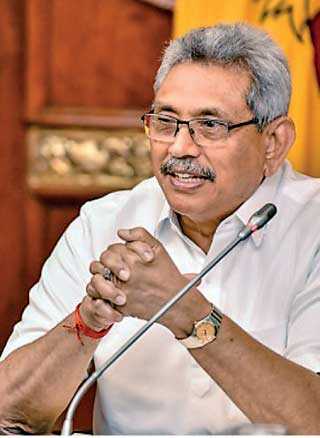 |
| Gotabaya Rajapaksa |
 |
| Mahinda Rajapaksa |
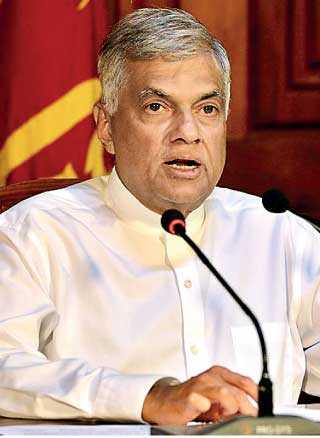 |
| Ranil Wickremesinghe |
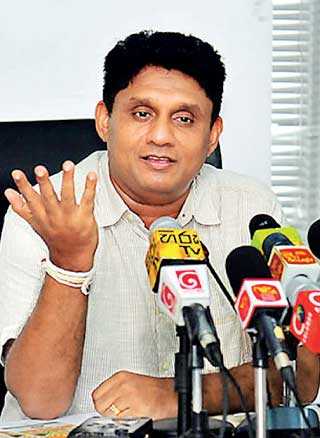 |
| Sajith Premadasa |
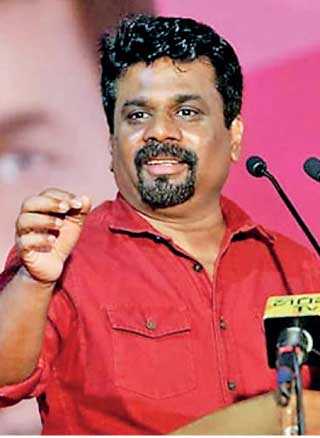 |
| Anura Kumara Dissanayake
|
The sagacious advice is relevant to politicians today
This answer is specifically guiding to those in power: Do not use your power to frighten others, mentally, verbally or physically. All you will earn will be ‘not love or respect but hate or dislike’. Ironically, it is this cursed fear that is being used by politicians today. They concoct fearmongering stories to frighten voters into obedience, on one side, and persuade them not to vote for their political rivals, on the other. This fearmongering list is long. But some salient instances include those stories against USA, China, India, the West, minorities or other religious groups. The politicians have been able to play this game because of one defect in the people. That is, the majority of them have lost rational thinking and, instead, embraced the faith that fosters emotions, prejudices or biases.
Rational man
Economists have termed the pleasure which a person gets out of a desirable experience as ‘utility’. In the opposite, the pain out of an undesirable experience has been called ‘disutility’. A person’s action, if he is rational or, in other words, not influenced by emotions, prejudices or biases, is always guided by his desire to avoid disutility and seek for utility. Since fear brings disutility to a person, he would do anything to avoid fear. Similarly, if he is already inflicted with fear, any promise of eliminating fear would be instantly embraced by him.
Era of fear
Sociologists have termed the current era as an ‘era of fear’. Given the society’s loud expression of fear of meeting with catastrophe from almost everything currently being experienced, climatic change, globalisation, terrorism, genetically modified food, polythene and many more, the rationale for this classification is understandable. However, it prejudges that fear is a novel experience and the degree and extent of fear tend to rise as time passes, for otherwise, the current era cannot be singularly called the era of fear. It, therefore, does not depict the actual situation.
Human beings, throughout their existence on the planet, whether as hunter-gatherers or cave-dwellers or civilised cohabiters, have always been living in fear of what they could not understand: the fear of the unknown. If the unknown cannot be learnt, then, it spawns risk. Hence, the fear of the unknown emanates from the fear of risk and that human mental state has been a common feature in all the eras.
Bounded rationality
Fear is, therefore, irrational and does not tally with the concept of the rational man. But rationality in human beings is bounded by three ‘lacks’ as depicted by the Nobel laureate Herbert A. Simon in 1957 which he called ‘bounded rationality’. He said that even if man wants to be rational, he cannot be rational because he is constrained by lack of all the information to make a judgment, lack of time to analyse that information and when the first two are present, the lack of brain power to do so. Hence, they make just satisfactory choices – in Simon’s terminology, be satisficers – instead of making the best choice. This weakness of man is fully capitalised by politicians to their advantage.
The birth of behavioural economics
How did the economists, then, manage to accommodate an irrational emotion like fear in their analysis which has long been based on the assumption of the rational man? This happened when the frontiers of economics were expanded in early 1970s by drawing on the findings of behavioural sciences like psychology. According to these findings, the behaviour of man was completely different from the objective rationality which economists had presumed to prevail when man is confronted with making choices. Thus, economists of new era began to look at the economic man as a maximiser of pleasure based on the instinctively guided emotions with which he is basically made of.
Research into human behaviour by Daniel Kahneman, a psychologist by profession, but winner of Nobel Prize in economics in 2002, helped economists to develop a new branch in economics called ‘behavioural economics’ later. Fear is analysed by economists under this new branch.
Economists do not propose remedies for the desirable or undesirable consequences of fear. They analyse the sources of fear, behaviour of those who take advantage of fear in people or its free riders and how the market distortions arising from its undesirable consequences require modifications to the mainstream economic theory.
Heart vs. Head
Psychologists had long found two divisions of the functioning of the brain, the emotional side and the rational side. In popular parlance, the emotional side was known as ‘heart’ and the rational side as ‘head’. The rational economic man on whom the economists built their theories came from this rational side of the brain. He was expected to draw on his past knowledge objectively, analyse all the information available and make choices by taking into account all the costs and benefits of his actions. The emotional man, on the other hand, is guided by his heart. Accordingly, he will make choices on the basis of fear and its consequential offspring, prejudices and biases.
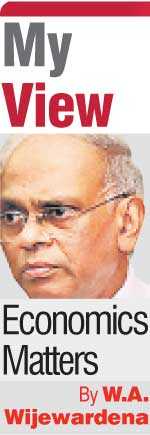 The two sides of the brain are in total conflict with each other. As such, it is essential for the rational side of the brain to dominate the emotional side, if the traditional economists are to establish the validity of their theories. But the psychologists like Daniel Kahneman found evidence to the contrary. In the majority of men and women, irrespective of age, educational level or social status, the emotional side was dominant and, hence, the choices they made were faulty and contrary to the predictions made by the mainstream economic theory.
The two sides of the brain are in total conflict with each other. As such, it is essential for the rational side of the brain to dominate the emotional side, if the traditional economists are to establish the validity of their theories. But the psychologists like Daniel Kahneman found evidence to the contrary. In the majority of men and women, irrespective of age, educational level or social status, the emotional side was dominant and, hence, the choices they made were faulty and contrary to the predictions made by the mainstream economic theory.
Fear is one such disturbing element that mars the rational thinking of many and leads to faulty choices.
If the majority of people are driven by emotional elements like fear, then, there are many who stand to gain by rousing fear in people. The list is long, but some prominent gainers are marketers, media men, certain religion-preachers, social activists and politicians. They maximise their gains by arousing fearful emotions of one type or another in their target groups.
Rational knowledge and irrational knowledge
In their day-to-day life, people are bombarded with statistics, information and news of various types of catastrophe without substance or authenticity. A rationally thinking person would very quickly dismiss them as baseless. He would draw on the store of his knowledge, evaluate the plausibility of the happening and rationally decide to reject the information or the statistics presented to him. But this process, known as acquiring ‘rational knowledge’, is difficult, time consuming and costly. Therefore, not many would venture into arming themselves with such costly knowledge. Man has always been a lover of cheap ‘instant products’ and ‘emotions’ come both cheaply and instantly.
The best example is the case of emotionally wired people. They choose to remain irrationally ignorant of the true facts, even when opportunities are afforded to them to acquire rational knowledge.
Such emotionally wired persons would, therefore, take the easy path and treat the bombarded information differently. They would find the news or the statistics confirming what they already hold as true. They would not take trouble to verify their accuracy or authenticity and accept them as true without probing into them.

Exploiters of fears and emotions
This lazy approach which emotionally wired people adopt when making judgments is sweet music to those who scheme to gain out of their irrational and emotion-driven ignorance.
The modus operandi adopted by them is the same: first, they arouse fear in people and, then, offer them with remedy to get out of fear.
Examine how marketers do it in catching the vulnerable people into their trap.
If women are fearful of getting old, the marketers would first show them how they would lose everything due to old age and, then, project their product as one that helps them to stay young forever. If young girls are worried about their dark complexion, the marketers would first add to their agony by showing how they lose job prospects or marriage proposals because they are not of fair complexion. Then, they would offer a product that would guarantee a fair skin. If men are unduly concerned about grey and falling hair, those concerns are first confirmed by the marketers by throwing them into encounters in which their male ego is hurt incurably. Then, a product, described as something to restore their hair line and solve all their problems, would be offered to them. In this manner, marketers would surreptitiously and shrewdly exploit every fear, prejudice and bias which people harbour in them and gain out of such fears.
Politicians are exploiters of fears of people
Politicians are not a better lot when it comes to exploiting fears of people for their gain. They would rouse the already teeming fears about terrorism, gloomy economic conditions, globalisation, and privatisation, selling of water to multinational companies, loss of job opportunities due to arrangements with IMF or World Bank and so on to their advantage. They also fuel irrational fancies like nationalism and patriotism to drive emotionally wired people to their camps. The best example used in the present election campaigns is the fear of MCC Compact grant offered to Sri Lanka by the US government.
So, everyone uses the fear in others to gain an advantage for them. This is not a new phenomenon and there is evidence that it was practiced even in the past. Kautilya, the third century BCE Indian economist who wrote the economic text Arthashartra, advised the king on an ingenious way of filling the depleted state treasury. He asked the king to: ‘Use the superstitious fears of ignorant people to collect additional revenue to the Treasury’
So, shrewd politicians would first rouse fear in people in the same way as marketers would do.
They would bombard people with news addressed to the emotional side of the brain. Once the target group is sufficiently alarmed and domiciled, they would offer the solution to rid that fear. This has been the art employed by politicians of every country and every generation for amassing the votes of gullible voters.
Herd behaviour
Anyone bent on exploiting emotions of people for their gain could easily do so due to the ‘herd behaviour’ of people like animals. Psychologists who conducted experiments into this area as far back as 1953 found that the majority of people tends to accept the falsehood as true even when they know personally that it is false, if others continue to say that it is true. So, laying a trap to capture people is easy: get as many as possible to chorus the falsehood repeatedly and then all of them voluntarily fall into your pocket!
Importance of allowing head to rule
The way to avoid being victimised by deliberately planned fear or emotion-rousing schemes is to develop one’s rational mind. To do so, one should first get rid of fear that is embedded in the emotional side of his brain. It comes from long learning, understanding and developing a probing mind. Or it may come from tenaciously held cultural traits as demonstrated by ‘Dhammapala Jataka’. In this Jataka Story, a father could not be fooled by showing him the bones of a dead animal as the bones of his dead son. ‘In our clan, people do not die young. Hence, this cannot be my son’s bones’ the rationally wired father tells the shocked demonstrator. As a result of father’s rational stand, the cunning demonstrator finally had to bring out the son from the hiding place and present him to the father.
The Buddha in the Dhajagga Sutta advised the Bhikkhus practising meditation in the forests to rid them of fear by being neutral.
That is, they should shed fear in them by being non-greedy, non-hating and non-delusional. To attain that quality, they should give up the two contrasts embodied in greed and generosity, hate and love and knowledge and ignorance and be in the neutral plane (available at: https://www.accesstoinsight.org/tipitaka/sn/sn11/sn11.003.than.html).
But developing rational men and women is costly. Hence, societies are full of irrationally ignorant people driven by emotions like fear and its offspring, prejudices and biases. They make choices that are different from the choices made by rational people. As such, economic theories which are based on the rational behaviour of people have been built on an illusion.
So, what should voters do at this election? They should first of all rid themselves of fears in them – fear of foreigners, markets, people – and cultivate the habit of exploring, probing and critically assessing the information that is bombarded to them by interested parties. They would be free and sovereign only if they succeed in doing so.

So, what should voters do at this election? They should first of all rid themselves of fears in them – fear of foreigners, markets, people – and cultivate the habit of exploring, probing and critically assessing the information that is bombarded to them by interested parties. They would be free and sovereign only if they succeed in doing so – Pic by Shehan Gunasekara
(The writer, a former Deputy Governor of the Central Bank of Sri Lanka, can be reached at [email protected].)